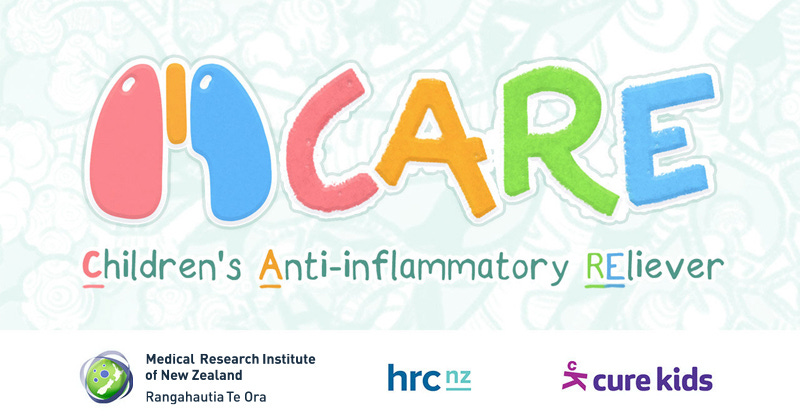Uber driver victory adds to a year of union resurgence
The unions have their sights set on the gig economy as a court ruling delivers another win for workers ahead of the Fair Pay Agreements bill becoming law
Mōrena and welcome to The Bulletin for Wednesday, October 26, by Anna Rawhiti-Connell. Presented in partnership with Z Energy.
In today’s edition: Watercare responds to Auckland mayor; the 101 things to be done about waiting lists; suspected suicide rates hit 13-year low; but first, an historic ruling for Uber drivers as unions continue to rise.
Yesterday’s ruling that four Uber drivers are employees, not contractors could have wider implications for the gig economy
Uber drivers are employees
Yesterday, the Employment Court ruled that four Uber drivers were employees of the ride-sharing company and not contractors. The case was first filed in July 2021 by First and E tū unions. The judge described the relationship the drivers had with Uber as one characterised by “a significant degree of subordination and dependency” but noted that the judgement applies to the four drivers named in the case and is not a sweeping ruling on all Uber drivers in New Zealand. It still has the potential to set a precedent. The judge drew on previous rulings in making her decision. The NBR’s Dita deBoni writes (paywalled) that the ruling sets an international precedent. Uber has said it will appeal the decision.
Drivers now invited to join union, collective bargaining on the cards
Rebecca Macfie has a great overview of the ruling this morning. One of the drivers, Julian Ang says the ruling has “implications for the wider gig economy across a range of sectors, including home support work, cleaning, gardening and so on, to reduce the risk of workers in these industries being ‘Uber-fied’.” There are 7000 Uber drivers in New Zealand. First Union strategic project coordinator Anita Rosentreter said it was now accepting these drivers as members and would initiate collective bargaining with the local arm of Uber. The union is also acting on behalf of Uber drivers to claim back-pay for wages, holiday pay and other entitlements. New Zealand Council of Trade Unions (NZCTU) president Richard Wagstaff said the ruling was a massive win.
Fair Pay Agreements Bill expected to pass into law today
Wagstaff and the NZCTU, along with other unions, have been proponents of the Fair Pay Agreements (FPA) bill, pointing to recent industrial action by SkyCity workers and the bus driver shortage as examples of where FPAs could help. It’s fair to say it's a controversial law, opposed fiercely by Business NZ and the National and Act parties, but is expected to become law today. Stuff’s Tom Pullar-Stecker has a good cheat sheet on FPAs and points out remaining areas of uncertainty when put into practice. Charlotte Muru-Lanning has looked at how they might work for hospitality workers. Green MP Jan Logie pressed the government last Thursday to pass the bill urgently as part of a call to close the gender and ethnic pay gap.
2022: the year of union resurgence
At the beginning of this year, Rebecca Macfie wrote a prescient piece about increasing industrial action in New Zealand in the face of rising inflation. At the time, the annual rate of inflation was 5.9%. It’s now 7.2%. I don’t think this next observation requires Nostradamus levels of prediction power, but the resurgence of unions is one of my early picks for themes that will end up characterising this year. Te Whatu Ora Health NZ chair Rob Campbell spoke to company directors in August about unions becoming more significant than they have been for a long time. Speaking to Q&A, historian Jim McAloon said the last 30 years had been unusual for their lack of industrial action. Worth a watch as he outlines what he thinks are the conditions that have led to the uptick in industrial action this year.
Could your child help other kids with asthma?
The Children’s Anti-inflammatory Reliever (CARE) study is trying to find the best asthma inhaler for young children. The Medical Research Institute of New Zealand (MRINZ) is looking for children aged 5-15 years with mild asthma to take part in a landmark study that could make a real impact on the health of our youth. The study provides free inhalers for a year, breathing tests and travel reimbursement for all participants. If you think you can help, sign up for CARE study recruitment here. (Sponsored)
Watercare responds to Auckland mayor request that all work cease on Three Waters
In a letter sent to Wayne Brown from Watercare chair Margaret Devlin, Devlin outlines that work can’t just stop on Three Waters because of a pesky thing called law. The letter was shared by the mayor’s office yesterday afternoon. Devlin outlines that a team has been working on ensuring Watercare has the necessary systems in place to meet requirements of a law passed in October 2021 which established Taumata Arowai, the water services regulator, and new drinking water regulations coming into effect next month. “As this law is in place, we need to continue this programme of work,” Devlin wrote. Devlin also clarified that the costs of the work were being borne by central government.
101 things to be done to address waiting lists
As covered yesterday, the task force charged with dealing with wait lists within the health system reported back on its recommendations yesterday. There are 101 recommendations and zero targets for when the list might be ticked off. Te Whatu Ora Health NZ's chief executive Margie Apa said while some recommendations were already being implemented, others would take years. The report outlined that the number of people waiting longer than 12 months for a first specialist appointment after being referred by their GP has increased over the course of the pandemic by 1581% (or 17-fold). One of the recommendations is to give GPs more ability to be able to diagnose without the need for a specialist. Health minister Andrew Little once again defended the government's record on health. National’s health spokesperson Shane Reti said he has likely lost the support of the sector.
Journalism is an essential part of society and shouldn’t be a privilege of those who can afford it. The support of readers like yourself helps to ensure The Spinoff remains freely accessible to all, regardless of their ability to pay. If you value what we do and have the means to do so, please make a donation today.
Response to pandemic played a large role in drop in suspected suicides rates
New Ministry of Health data shows suspected suicides rates are the lowest they have been in the past 13 years but Māori, men and young people are still overrepresented in suicide rate statistics. As Baz Macdonald reports for Re:News, Mental Health Foundation chief executive Shaun Robinson said our response to the pandemic has played a large role in this drop. Robinson said he hoped politicians connected the dots between the dropping suicide rates over the past several years and the emphasis on community support and connection.
Click and collect
More than 130 Covid cases on cruise ship that was docked in Wellington - now in Picton.
Nicola Willis confident National will attract diverse candidates for Hamilton West byelection.
There are more women than men in New Zealand’s parliament, putting us just behind Rwanda, Cuba and Nicaragua for gender representation in national parliaments globally
Two images of Britain, taken seven weeks apart, that speak volumes
Eric Crampton takes a closer look at Oxfam’s tax system fairness ranking that had New Zealand ranked 136th out of 161 countries.
Got some feedback about The Bulletin, or anything in the news? Get in touch with me at thebulletin@thespinoff.co.nz.
If you liked what you read today, share The Bulletin with friends, family and colleagues.
Another week, another new British PM. Toby Manhire has everything you need to know about Rishi Sunak. Stewart Sowman-Lund catches up with Tova O'Brien, seven months into what she’s come to realise is her "dream job". Sam Brooks writes about the enormous TV that helped him through grief. Chris Schulz warns of a possible egg shortage. And The Spinoff's CTO Ben Gracewood steps out from the mainframe with a run-down on all the changes going on behind the scenes to soup up the site.
The importance of Japan to New Zealand rugby
Ahead of Saturday’s All Blacks game against Japan, Stuff’s Paul Cully takes a look at why Japan is an ally New Zealand can’t afford to ignore. Stuff understands Australian Super Rugby teams playing in Japan had all their costs taken care of by the Japanese clubs hosting them. Cully writes that “it’s another illustration of where the real might lies in Japan – at the corporations who fund the clubs – and a reminder that New Zealand, and Australia, have been relatively slow to grasp the opportunities on offer there.”











Eric Crampton’s Oxfam Tax article never mentions the elephant in the nz tax room that does contribute massively to inequality. Our lack of a proper capital gains tax that most other OECD countries have, and the trillion dollars plus of wealth given to asset owners over the pandemic that will stay in their well lined pockets.